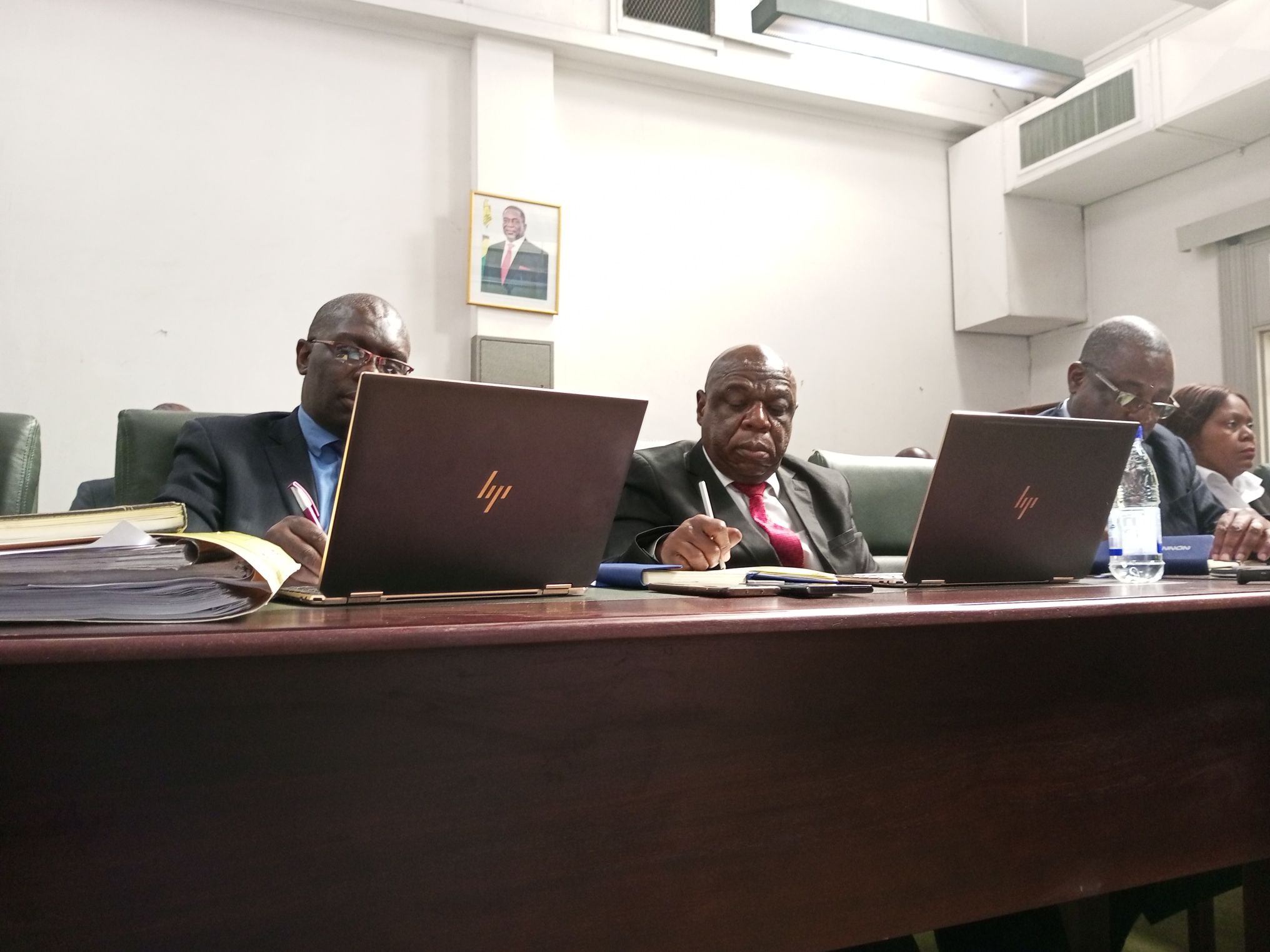|
Getting your Trinity Audio player ready…
|
There were heated verbal exchanges today at the committee meeting by the Public Accounts Committee that sat to deliberate events that led to the cancellation of a Blinart Investments P/L tender to supply 173 laptops for US$1,602,755.77 to the Parliament of Zimbabwe.
If the deal had sailed, Parliament would have parted with US$$9,200 per laptop but a letter to the Clerk of Parliament, Mr. Kennedy Chokuda by Mr. George Guvamatanga, the Permanent Secretary for the Ministry of Finance and Economic Development drew the attention of the public to the botched deal.
In a no-holds-barred exchange today, Hon Temba Mliswa, the Norton legislator called for heads to roll over what he described as corruption that stinks to the high heavens but the Clerk of Parliament, Mr. Chokuda cleared the air over a number of issues misconstrued as corporate malfeasance at the august house.
“Mr. Clerk, please pack your bags and go. You are the Chief Accounting Clerk but you put your signature for laptops that cost US$9, 200 each. If you were in China, you should have been dead by now because of such corruption,” Hon Mliswa said.
In clearing the air, Mr. Chokuda revealed that Parliament procurement processes are beyond reproach, water-tight and fair. His sentiments were echoed by Mr. Stanley Bhebhe, the Director of Procurement for Parliament who revealed that from the day of advertising up to the end of the bid, it does not speak to suppliers.
“Information is not given to a specific bidder for fairness. As a barometer to show public confidence in Parliament, 92 bidders responded and 30 bidders submitted their bids.”
Mr. Chokuda revealed that there is now a Procurement plan in place with officers being trained, particularly the evaluation committee, that has already been capacitated.
There is now a Procurement Management Unit (PMU) that is headed by the Clerk who is the Parliament’s accounting officer that works hand-in-glove with the evaluation committee comprising heads of departments. There is a budget committee that identifies what’s to be bought and in what quantities.
When procuring, standard bid documents are prepared by the PMU. Tenders are opened in the presence of all bidders. Quoted costs are called out to all bidders.
After this, documents are taken to PMU and submitted to the evaluation committee that evaluates bids and recommends successful bidders. The PMU and evaluation committee agree after the evaluation. The threshold should be within the assigned threshold. If above the prescribed threshold, it is sent to PRAZ which decides the winning bidder. Request for quotation entails requesting 3 quotations which are then given to the lowest cost according to spoke evaluation.
Procurement thresholds are determined by the Act. The threshold for goods is US$10 000 and below while for services it should be below US$5 000, and below US$20 000 if it’s construction work. Anything above that attracts tenders.
